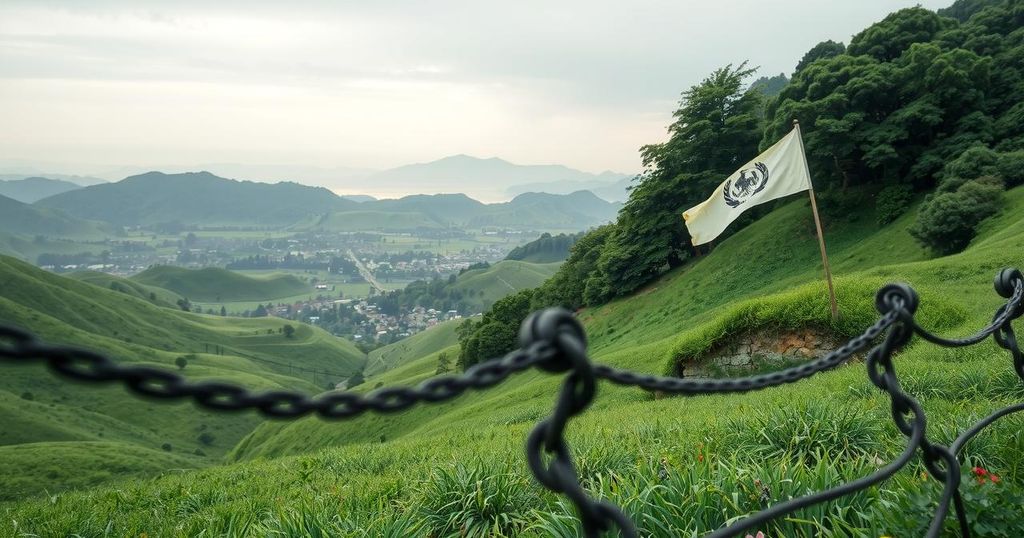M23 Fighters and Rwandan Troops Capture Bukavu Amid Escalating Conflict

M23 fighters and Rwandan troops have captured Bukavu, the capital of South Kivu province, facing minimal resistance. President Tshisekedi condemned Rwanda and will not attend the African Union summit as violence escalates. Humanitarian concerns mount over the rising casualties and refugee crisis, prompting calls for an immediate ceasefire and international sanctions against Rwanda.
M23 fighters, alongside Rwandan troops, have reportedly entered Bukavu, the provincial capital of the Democratic Republic of Congo (DRC) in South Kivu province. The city of approximately one million residents fell with minimal resistance as the forces also took control of the region’s main airport. Congolese President Felix Tshisekedi condemned Rwanda’s actions, asserting that they reflect a desire for territorial expansion amid the ongoing conflict that threatens regional stability.
As M23 and Rwandan forces advance towards Bukavu, local businesses are closing, and residents are fleeing the city in fear of violence. A government official stated that President Tshisekedi would not participate in an upcoming African Union summit hosted in Ethiopia, prioritizing the monitoring of the developing situation on the ground following significant military developments.
The situation in Bukavu prompted civil groups to urgently appeal to Congolese troops to avoid engaging in combat within the city. Various reports indicate that M23 fighters encountered little opposition during their advance, raising alarms over a potential escalation of violence and a wider regional conflict.
Following a period of calm, hostilities have reignited, leading African leaders to call for an immediate ceasefire as tensions escalate. Moussa Faki Mahamat, the outgoing chair of the African Union, emphasized that effective solutions necessitate the cessation of hostilities. He stated, “The ceasefire must be observed. Military campaigns are not going to solve these problems.”
President Tshisekedi criticized Rwanda’s involvement in the conflict and pointed to the need for international sanctions against Kigali. He claimed, “What’s needed is to blacklist the real culprit of this situation: Rwanda,” highlighting the systematic plundering of the DRC’s abundant resources by external forces.
The violence has led to a tragic toll of nearly 3,000 casualties, as reported by the United Nations. The situation in Goma remains dire, with many residents lacking access to essential services. Humanitarian organizations have raised concerns regarding a cholera outbreak, calling for immediate and safe access to support the displaced populations affected by ongoing hostilities.
The recent surge in violence has resulted in a significant influx of Congolese refugees into neighboring countries. Burundi was compelled to temporarily close its borders to accommodate the rising number of individuals seeking safety from the conflict, indicating growing regional instability.
Local residents near the border expressed their concerns regarding the implications of the conflict approaching their towns. One individual noted that the persistent influx of refugees was disconcerting, suggesting that the situation is escalating towards a broader war, ultimately prompting urgent attention from international stakeholders.
The entry of M23 fighters and Rwandan troops into Bukavu marks a significant escalation in the conflict in the DRC. Both the Congolese president and various humanitarian organizations express deep apprehensions regarding the ongoing violence, humanitarian crises, and regional stability. Calls for a ceasefire and international intervention highlight the urgent need to address the escalating situation and protect vulnerable populations affected by the conflict.
Original Source: www.montanarightnow.com








